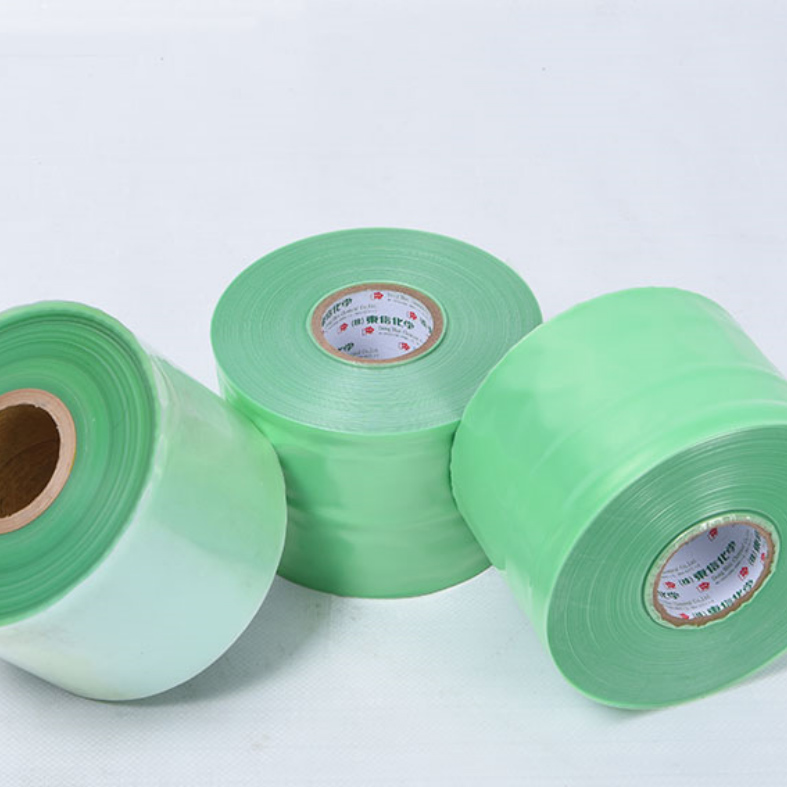What is VCI film?
In today's rapidly evolving industrial landscape, where the focus on efficiency and conservation is of utmost importance, there is an ongoing quest for inventive measures to protect valuable resources. Among these, VCI film has emerged as a notable contender. The acronym VCI stands for Volatile Corrosion Inhibitor, and it presents an innovative strategy for shielding metallic assets against the pervasive threat of corrosion. This article delves extensively into the realm of VCI film, delving into its structure, advantages, applications, and the profound influence it exerts across diverse sectors.
Understanding VCI Film: A Brief Overview
VCI film is a specialized packaging material that employs cutting-edge technology to shield metal products from the pervasive and damaging effects of corrosion. Corrosion, a natural process that occurs when metals interact with environmental elements such as moisture and oxygen, can lead to costly damage, reduced product lifespan, and compromised quality. VCI film, however, is designed to combat these issues by creating a protective barrier that actively inhibits the corrosion process.
The Science Behind VCI Film
At the heart of VCI film lies a blend of science and innovation. VCI molecules are the star players in this chemical ballet. These molecules possess the remarkable ability to volatilize and migrate onto the metal surfaces they are intended to protect. Upon reaching the metal, they form an invisible shield that repels moisture and oxygen—the two primary culprits in the corrosion process.
The beauty of VCI film lies in its simplicity. Once a metal product is enveloped in the film, the VCI molecules work their magic, diffusing throughout the enclosed space. This molecular shield clings to the metal surface, effectively creating a barrier that prevents corrosive agents from coming into contact with the metal. In essence, VCI film transforms ordinary packaging into an active, anti-corrosion solution.
Advantages of VCI Film
Long-Term Protection: VCI film offers extended protection, significantly prolonging the shelf life and usability of metal products. This translates to reduced replacement costs and increased customer satisfaction.
Ease of Application: The application of VCI film is straightforward. It requires no complex machinery or special training, making it an accessible solution for businesses of all sizes.
Cost-Effective: While VCI film is a sophisticated technology, it ultimately provides a cost-effective means of corrosion prevention. The savings gained from reduced maintenance, product replacement, and rework easily justify the investment.
Environmentally Friendly: VCI film is often considered a more environmentally friendly alternative to traditional methods of corrosion prevention, which may involve hazardous chemicals or coatings.
Versatility: VCI film can be customized to accommodate various shapes and sizes, from small metal components to large machinery. Its adaptability makes it suitable for a wide range of industries.
Applications of VCI Film
The versatility of VCI film extends to its numerous applications across various industries:
Manufacturing: In industries where metal components are fabricated and transported, such as automotive, aerospace, and electronics, VCI film ensures that these components reach their intended destinations in pristine condition.
Shipping and Storage: During transportation and warehousing, metal products are often subjected to fluctuating temperatures and humidity levels. VCI film serves as a safeguard against corrosion during these critical stages.
Military and Defense: The defense sector relies on VCI film to protect critical equipment, machinery, and vehicles from corrosion, especially in challenging environments and during long deployments.
Marine Industry: VCI film finds its place in the marine industry, guarding against the corrosive effects of saltwater and humid conditions on ships, boats, and marine equipment.
Oil and Gas: The equipment used in the oil and gas industry is subjected to harsh conditions, including exposure to corrosive chemicals and elements. VCI film helps extend the lifespan of these essential assets.
Electronics: The electronics sector benefits from VCI film's ability to prevent corrosion on circuit boards, connectors, and other metal components, thereby ensuring the reliability of electronic devices.
A Sustainable Solution for the Future
As industries continue to evolve, so too does the demand for efficient, cost-effective, and sustainable solutions. VCI film emerges as a star player in this landscape, aligning with the principles of preservation and eco-friendliness. By addressing the persistent challenge of corrosion, VCI film contributes to resource conservation, reduced waste, and increased product longevity—essentially embracing the ethos of a circular economy.
Conclusion
In the ceaseless pursuit of protecting valuable assets from the grip of corrosion, VCI film stands as a testament to human ingenuity. This advanced technology combines science and innovation to create an invisible shield that actively safeguards metal goods from the elements that threaten their integrity. As industries across the spectrum recognize the advantages of VCI film, it is poised to become an integral component of modern preservation strategies, ensuring that the products we rely on remain corrosion-free, durable, and ready to serve for years to come.




